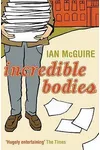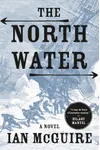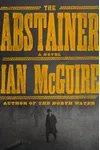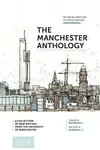Picture a British storyteller who plunged readers into the icy, brutal world of a 19th-century whaling ship—meet Ian McGuire! With his knack for blending gritty historical detail with heart-pounding drama, McGuire has carved a unique niche in contemporary fiction. His breakout novel, The North Water, not only snagged a Man Booker Prize longlisting but also became a gripping BBC miniseries, cementing his reputation as a master of immersive storytelling.
Born in 1964 in Hull, East Yorkshire, McGuire’s roots in a historic whaling port subtly shaped his literary path. Today, he’s not just a celebrated author but also an academic, shaping minds at the University of Manchester’s Centre for New Writing, which he co-founded. Let’s dive into the life and works of this captivating writer!
The Making of Ian McGuire
Growing up near Hull, a city steeped in maritime history, McGuire was surrounded by tales of the sea that would later echo in his work. He studied at the University of Manchester, followed by an MA at the University of Sussex and a PhD in 19th-century American Literature from the University of Virginia. His academic focus on American realism, from authors like Herman Melville to Richard Ford, sharpened his eye for authentic, unflinching narratives. By 1996, he was lecturing at Manchester, eventually co-founding the Centre for New Writing, where he nurtures aspiring authors while crafting his own gripping tales.
McGuire’s early writing included short stories in prestigious outlets like The Paris Review and Chicago Review. His first paid piece? A poem about a motorcycle accident for his school magazine at age 13, earning him 50 pence and a Mars bar—a charming start for a future literary star!
Ian McGuire’s Unforgettable Stories
McGuire’s novels are a masterclass in blending literary depth with thriller-like intensity. His debut, Incredible Bodies (2006), is a darkly comic tale of Morris Gutman, a temporary lecturer navigating the absurdities of academia. It showcased McGuire’s sharp wit and knack for complex characters, setting the stage for his later triumphs.
His second novel, The North Water (2016), is a chilling historical thriller set aboard a doomed whaling ship in 1859. Inspired by Melville’s Moby Dick and Cormac McCarthy’s stark prose, it follows Patrick Sumner, a disgraced surgeon, and Henry Drax, a brutal harpooner. The novel’s vivid depiction of survival and savagery earned it a spot on the New York Times’ 10 Best Books of 2016 and a 2021 BBC adaptation starring Colin Farrell.
In The Abstainer (2020), McGuire trades the Arctic for 1860s Manchester, weaving a tense tale of an Irish policeman hunting a Fenian rebel. His upcoming novel, White River Crossing (set for 2025), promises another gritty historical dive. McGuire’s style—meticulous research, morally complex characters, and a knack for thrusting readers into harsh settings—makes his work both thrilling and thought-provoking.
Why Ian McGuire Matters
McGuire’s impact lies in his ability to breathe life into historical settings while exploring timeless questions of morality and survival. His novels resonate with readers who crave stories that are as intellectually rich as they are visceral. Awards like the Royal Society of Literature’s Encore Award and the Historical Writers’ Association Gold Crown for The North Water highlight his influence in historical fiction. By mentoring new writers at Manchester, he’s also shaping the next generation of storytellers.
His work’s adaptability—evident in the successful TV adaptation of The North Water—proves his stories transcend the page, captivating audiences across mediums. McGuire’s blend of scholarly precision and narrative grit makes him a standout voice in modern literature.
- Born: 1964, Hull, East Yorkshire
- Key Works: Incredible Bodies, The North Water, The Abstainer, White River Crossing (2025)
- Awards: Royal Society of Literature Encore Award, Historical Writers’ Association Gold Crown
- Notable: Co-founder of the University of Manchester’s Centre for New Writing
Snag The North Water and dive into Ian McGuire’s thrilling world of historical fiction—you won’t surface until the final page!




